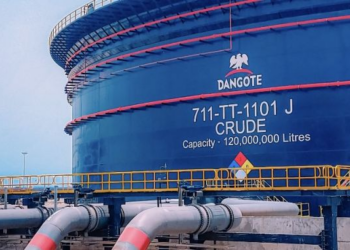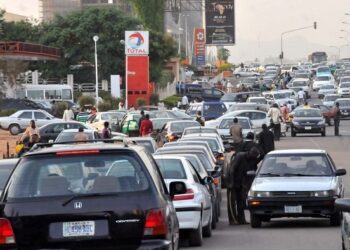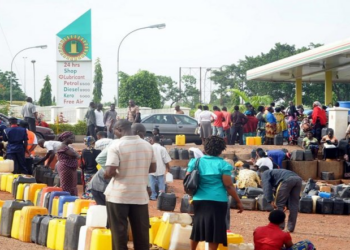Fuel supply dispatch has improved in Abuja after an initial drop between February 25 and March 3. This is according to data from the weekly evacuation and dispatch report published by the Nigerian Midstream and Downstream Petroleum Regulatory Authority (NMDPRA).
In the report, which was published on Sunday, March 12, Abuja was said to have received 619 trucks of fuel for dispatch to filling stations in the city. The report also stated that the total evacuation for the week was 558.83 million liters of fuel, meanwhile, the daily evacuation for the week was 79.83 million liters.
In the last two weeks, Abuja residents have been battling a lingering fuel scarcity crisis. However, the situation intensified last week, after several filling stations including the Nigerian National Petroleum Company (NNPC) Limited stations in Nyanya/Mararaba expressway were locked up.
As a result of this, many residents turned to black market traders who sell fuel for as high as N450 per liter. It is expected that the situation will improve in the coming weeks.
The backstory: INMDPRA had previously noted that the supply drop earlier cited was recorded between February 25 to March 3, when Abuja received 335 fuel trucks. The Nigerian National Petroleum Company (NNPC) Limited had earlier said the reasons why Abuja was experiencing fuel scarcity were because of the impact of the movement restrictions during the February 25 presidential election.
In a March 5 statement by the NMDPRA, Nigerians were assured of an efficient supply of fuel following movement restrictions and the unavailability of truck drivers who had to exercise their civic duties during the presidential elections. The NMDPRA said it was working to ensure the problem is tackled.
According to a previous report by the NMDPRA, Abuja received 731 fuel trucks between February 11 to 17. As supply normalizes in Abuja in the coming weeks, it is expected that the volumes will increase further from 619.
What you should know: In the NMDPRA report, the top five states with the highest fuel trucks are Lagos with 1,961 trucks, Oyo with 714 trucks, Abuja with 619 trucks, Delta with 583 trucks and Ogun with 533 trucks. Meanwhile, the states with the five lowest fuel truck deliveries are Ebonyi with 38 trucks, Gombe with 58 trucks, Zamfara with 60 trucks, Borno with 69 trucks and Jigawa with 73 trucks.















.gif)






